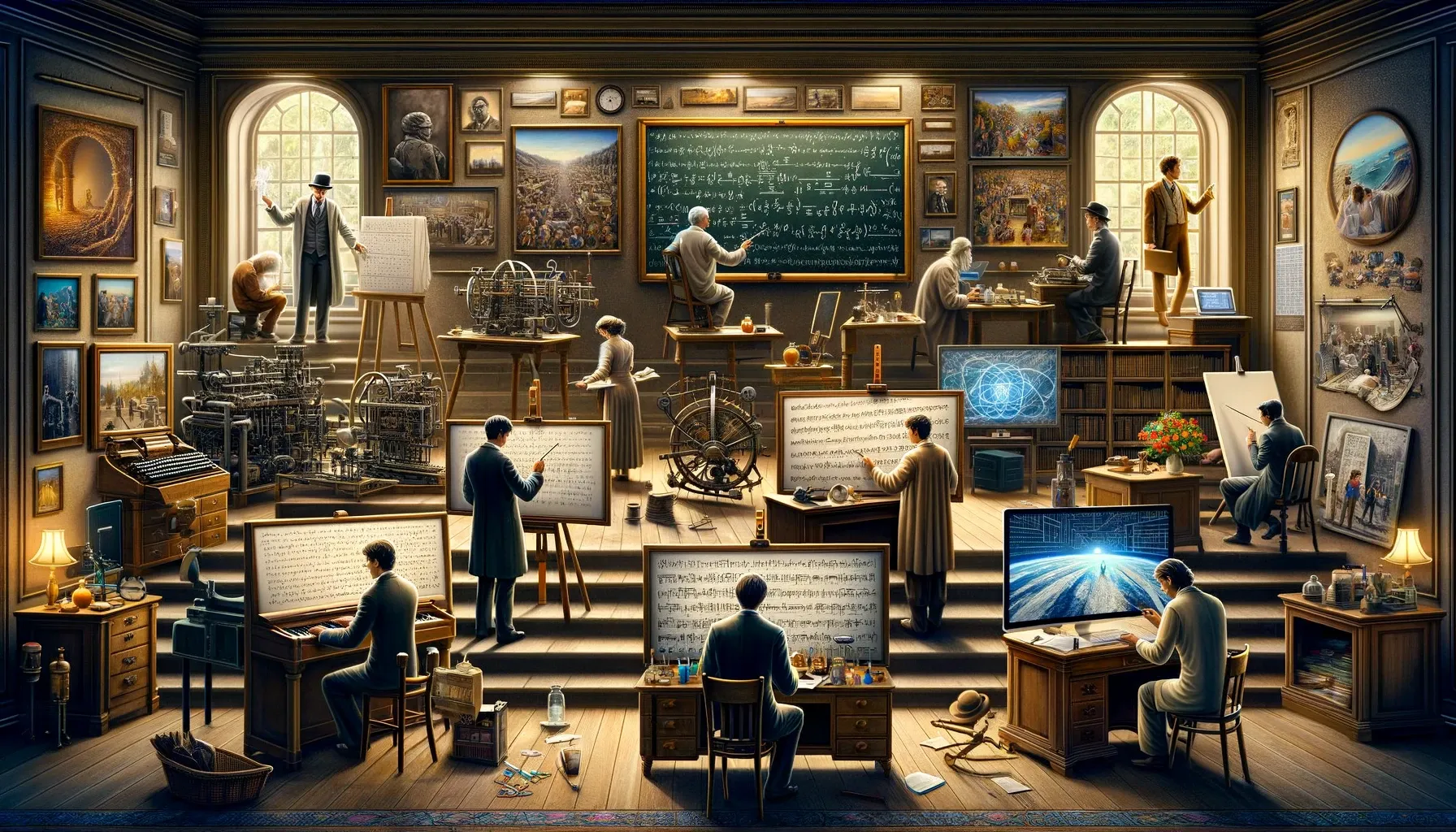The Emergence of Geniuses Over the Last 200 Years
Over the past two centuries, the world has witnessed the emergence of numerous geniuses who have revolutionized various fields with their radical ideas and groundbreaking innovations. This article delves into the philosophical discussion of how many true geniuses—those who transform our understanding and capabilities—are born among the billions
Over the past two centuries, the world has witnessed the emergence of numerous geniuses who have revolutionized various fields with their radical ideas and groundbreaking innovations. This article delves into the philosophical discussion of how many true geniuses—those who transform our understanding and capabilities—are born among the billions and the challenges they face in being recognized.
Defining Genius
The term "genius" refers to individuals possessing extraordinary intellectual and creative power. Geniuses not only excel in their fields but often transform them, creating waves of change that resonate through generations. They are distinguished not merely by their talent but by their capacity to push the boundaries of human knowledge and creativity.
Historical Geniuses Across Disciplines
The last 200 years have been particularly rich in producing geniuses whose contributions have shaped modern civilization. Here, we explore some notable figures across various disciplines:
- Science:
- Albert Einstein (1879–1955): Revolutionized physics with his theory of relativity, which changed our understanding of time, space, and gravity.
- Marie Curie (1867–1934): Pioneered research on radioactivity, a term she coined, and was the first person to win Nobel Prizes in two different scientific fields.
- Technology:
- Nikola Tesla (1856–1943): His work on alternating current (AC) electrical systems formed the foundation of modern electrical power systems.
- Alan Turing (1912–1954): Father of theoretical computer science and artificial intelligence, whose work was crucial in developing the digital computer.
- Mathematics:
- Srinivasa Ramanujan (1887–1920): Made substantial contributions to mathematical analysis, number theory, infinite series, and continued fractions.
- Arts:
- Ludwig van Beethoven (1770–1827): His compositions, especially during a time when he battled deafness, transformed the landscape of classical music.
- Pablo Picasso (1881–1973): Co-founder of the Cubist movement, which revolutionized visual arts in the 20th century.
- Literature:
- Leo Tolstoy (1828–1910): His novels, such as "War and Peace," delve into the human condition and the complexities of life in a way that continues to influence writers around the globe.
The Rarity of Genius
The birth of a genius is a rare event. With over seven billion people on the planet, the emergence of true geniuses is sporadic and unpredictable. Many factors contribute to the development of a genius, including environment, education, and genetic makeup. Despite these factors, the path to becoming recognized as a genius is fraught with challenges. Often, societal recognition comes much later than the contributions themselves, and many geniuses may never be fully acknowledged during their lifetime.
Challenges Faced by Geniuses
Geniuses often face significant challenges:
- Misunderstanding and Isolation: Their groundbreaking ideas can be misunderstood by contemporaries, leading to social isolation.
- Lack of Resources: Without adequate support and resources, translating visionary ideas into reality can be daunting.
- Mental Health Struggles: The intense focus and pressure can lead to significant mental health challenges.
True geniuses have the power to change the world, but their paths are rarely easy. Recognizing and supporting these extraordinary individuals from an early age can help ensure that their potential is not lost to the challenges they face. As society continues to advance, fostering environments that nurture potential geniuses will be crucial for ongoing human development and innovation.
This philosophical exploration underlines the rarity and significance of geniuses in shaping our world, reminding us of the importance of nurturing and valuing these remarkable minds for the betterment of society.





